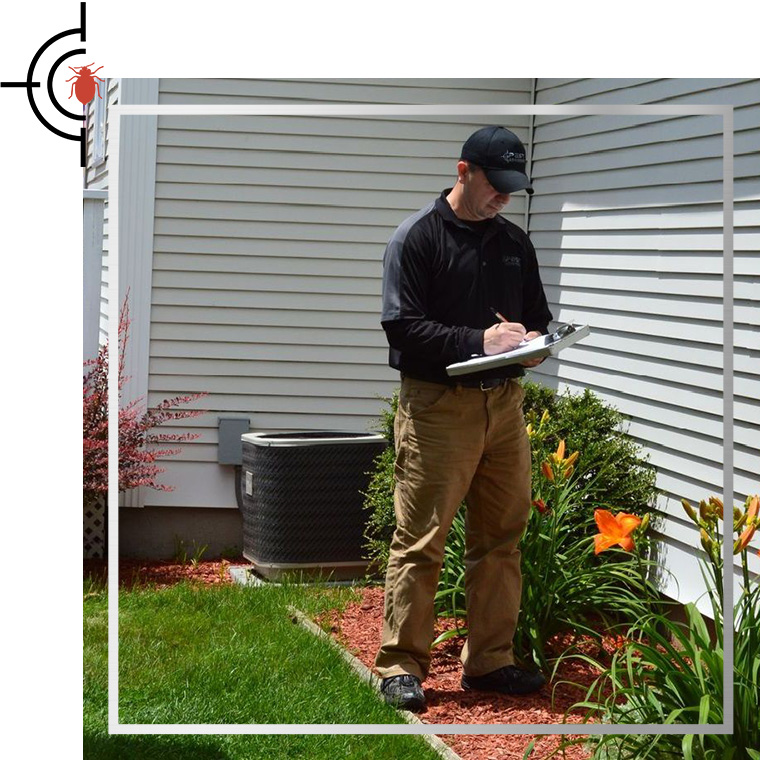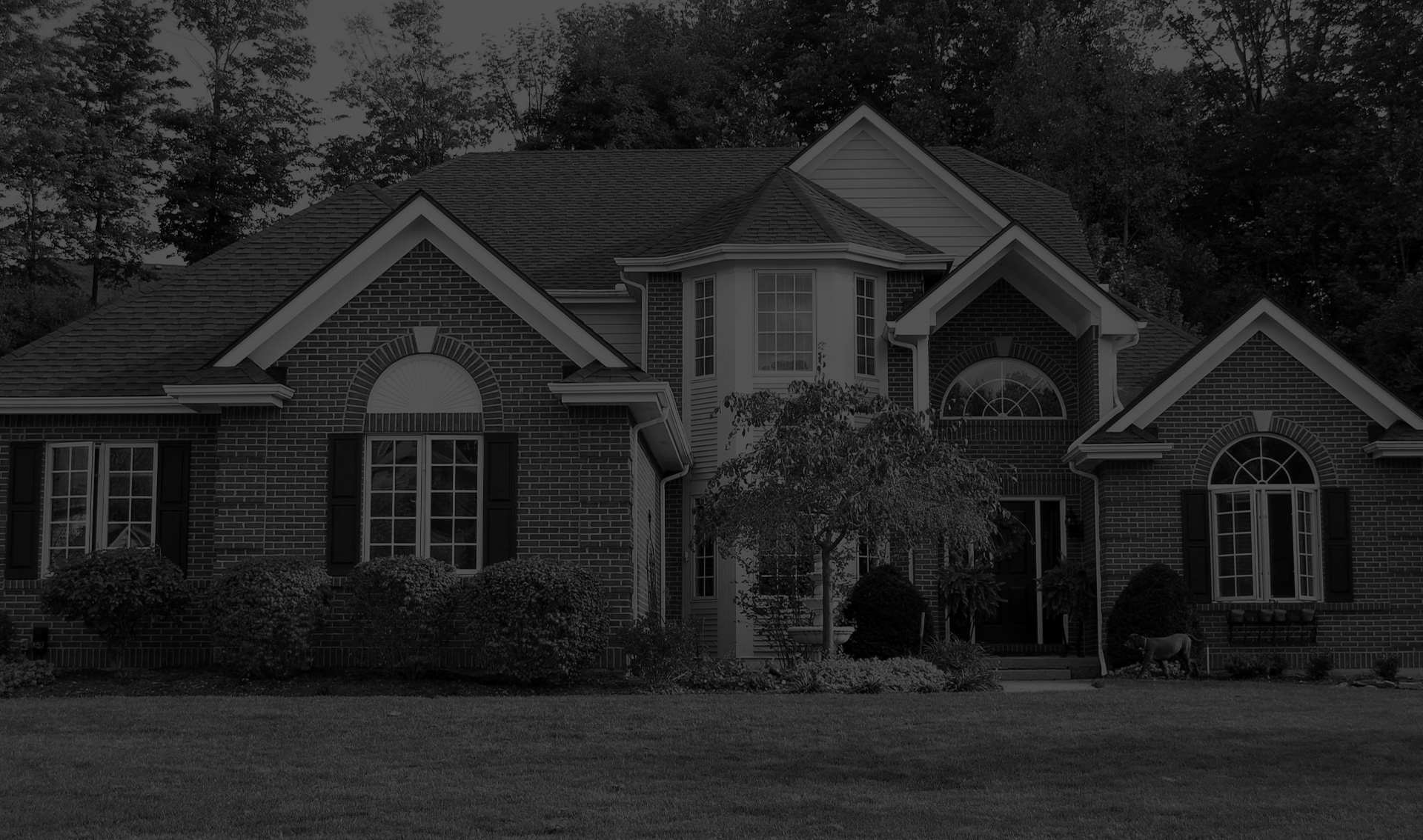
Bee & Wasp Removal in New England
Comprehensive Stinging Insect Control for New England Properties
New England's warm seasons and abundant plant life create an ideal environment for bee activity. While bees support local ecosystems, their nests can cause problems for homes and businesses. These insects often settle in walls, attics, and other sheltered areas where they can thrive undisturbed.
Effective bee control requires familiarity with local bee species, their behavior, and legal protections. At Pest Assassins, we use experience-backed methods that protect your property while respecting the role bees play in nature.
Call Pest Assassins at (877) 665-2667 or send us a message online today.
Flexible, Professional Bee & Wasp Control Without Contracts
Pest Assassins gives you the freedom to choose between one-time removals and ongoing prevention—no contracts required. We deliver responsive, professional service built around your immediate concerns. Our team works efficiently to remove hives and block future nesting spots without disrupting your daily routine.
As a veteran-owned business, we approach each job with focus and discipline. Every technician brings hands-on experience to the field, using tested methods to protect your property and preserve bee populations. Our approach puts function and safety first—always.
We offer clear pricing and walk you through each step before any work begins. You’ll know what to expect from the inspection through the final visit, without surprises. We believe informed decisions lead to better results.
Common Stinging Insects In Our Area
Carpenter Bee
Carpenter bees are traditionally considered solitary bees. Carpenter bees make nests by tunneling into wood vibrating their bodies as they move their mandibles against the wood. Each nest has a single entrance which may have many adjacent tunnels.
Male carpenter bees are harmless, since they do not have a stinger. Female carpenter bees are capable of stinging, but they are docile and rarely sting unless caught or directly provoked.
Yellow Jacket Wasp
Yellow jackets are the most common wasp found in the eastern United States. Easily identified by their bright yellow and black stripes on their abdomen, yellow jackets are prolific hunters and nest builders. Sometimes yellow jackets are confused with Hornets because of their colors but Hornets have much larger heads and most hornets in our area are black and white.
These wasps do not pollinate but benefit the ecosystem by controlling smaller insect populations that damage crops and food items.
Bald-Faced Hornet
Bald-faced hornets get their name from the fact that they are almost completely black except for white color patterns on their face and body. Bald-faced hornets are actually a relative of yellow jackets and paper wasps. They are both beneficial and predatory in nature, assisting with controlling other pest populations.
Bald-faced hornets are aggressive and will sting when threatened. Their stinger is venomous and should be removed carefully.
Safe Bee & Wasp Removal and Long-Term Prevention
We use practical techniques for both removal and prevention. Our team evaluates seasonal trends, nearby plant life, and the structure of your home or business to create a control plan that fits your property.
- Inspection: We will inspect the exterior of your property for visible nests or void entry points.
- Nest Treatment: We use the most advanced products to treat the nest and entry points for best results.
- Nest Results: Due to the nature of these pests total nest elimination may take a few days.
- Guarantee: All work is backed by our money back guarantee. If pests return, so do we!
We also monitor advancements in bee relocation tools and methods, selecting solutions that support bee survival after removal. This keeps our work environmentally responsible and aligned with best practices.
Local Experience Makes the Difference
New England’s mix of urban and natural spaces means bees often establish hives near homes and commercial buildings. Our team uses knowledge of local landscapes and regulations to deliver safe, informed service. We also consult with agricultural professionals to stay updated on bee migration patterns and activity trends.
Every step—from the first call to the final visit—reflects our focus on detail, clear communication, and respect for your space. We use high-quality equipment, stay current on removal strategies, and aim for safe, effective results on every job.
Need professional bee, wasp, and hornet removal in New England? Call Pest Assassins at (877) 665-2667 or send us a message online today.
How Can I Tell if I Have a Bee Infestation?
Recognizing a bee infestation early can prevent extensive damage and irritation. Common indicators include visible swarms around eaves or attics, buzzing noises within walls, and increased bee activity in one area. Bees entering and exiting a small opening could signal a nest inside. Regular inspections of your property can help identify these signs early, ensuring that any bee removal in New England is timely and effective.
Are Bee Removals Safe for the Environment?
Yes, they can be. At Pest Assassins, we prioritize environmentally safe practices. Our removals focus on relocating rather than exterminating bees whenever possible. We follow guidelines to ensure minimal ecological impact, supporting local ecosystems while protecting your property's integrity. This commitment helps maintain biodiversity and supports conservation efforts across New England.
What Should I Do if I Find a Bee Hive on My Property?
If you discover a hive, it’s important to avoid disturbing it. This could provoke defensive behavior from the bees. Instead, contact us at Pest Assassins for an assessment. Our trained technicians will evaluate the situation, offering safe and effective removal solutions tailored to your needs.
It's also advisable to limit access to the area, keeping children and pets away, and alerting neighbors about potential risks. Our team will arrive promptly to address the situation while providing you with interim safety precautions until removal is safely conducted.
Why Should I Avoid DIY Bee Removal?
DIY methods can often lead to incomplete removals and increased risk of bee stings. Improper handling can agitate bees, causing them to swarm defensively. Professional services, like those offered by Pest Assassins, ensure safe, effective removal with minimal risk to you and the bee population. Our experience and understanding of bee removal in New England allow us to handle even the most challenging situations with care and efficiency.
What Happens to the Bees Once Removed?
When possible, we relocate bees to local apiaries or areas where they can safely continue their vital ecological role. This approach helps maintain biodiversity and ensures that bees, essential pollinators, survive and thrive, benefiting the entire community.
We work closely with local beekeepers and conservationists to ensure that relocated bees are integrated into environments that support their growth and reproduction. This cooperation not only saves bees but also builds community networks that are crucial for local conservation efforts.
Your Solution for Bee-Free Peace of Mind
Experience the freedom and peace of mind that comes with professional bee control services from Pest Assassins. Our commitment to contract-free, flexible solutions backed by a highly trained team ensures you are in control every step of the way. With Pest Assassins, you get more than just a service; you get a partner in maintaining the safety and comfort of your home or business.
Trust in our promise of dedication, informed practices, and community-focused solutions that protect both your property and our precious pollinators.
Contact us today to schedule a thorough consultation at (877) 665-2667 and rediscover your home's comfort and safety.

Enjoy peace of mind with our flexible recurring service. Get expert pest control every quarter, without the commitment of a contract. You can cancel anytime, but we’re confident you’ll love the results!
Frequently Asked Questions
Still have questions or can't find the answer you need? Give us a call at 877-665-2667 today!
-
Can German roaches damage my property?While German roaches primarily pose health risks, they can also damage materials like paper, fabric, and even electrical wiring, leading to costly repairs.
-
How can I prevent ants from entering my home?Preventative measures include sealing cracks and crevices, keeping food stored properly, and maintaining a clean environment. Regular inspections can also help catch potential issues early.
-
What are the common species of mosquitoes in New England?
New England is home to several mosquito species, including the Eastern Saltmarsh mosquito and the Asian Tiger mosquito. Each species has unique behaviors and habitats.
Mosquitoes are small flying insects with large front and rear legs (relative to their entire body) and slender body segments that are classified as “flies.” There are key differences between male and female mosquitoes. Like most flies, male mosquitoes usually only live 5-7 days after emerging as adults and mating. Males do not seek out blood for food; they rely strictly on nectar or plant sugars. Males will form large swarms at dusk in spring and summer and females will fly into these swarms to mate. Females will seek out a blood host (they’re ectoparasites of all mammals) only when she has been impregnated, otherwise she consumes plant sugars for energy. Once a blood meal is found she will rest under plant leaves and vegetation while she digests. The female will then lay her eggs and begin the process again. Most females will die within 2 or 3 weeks naturally and the process occurs over and over during the summer months.
Like all flies, mosquitoes undergo the same four-stage life cycle: egg, larva, pupa, and adult. The second and third stages are aquatic. Depending on the particular species, the female mosquito lays her eggs, either individually or in attached groups called “rafts.” The word mosquito is Spanish and means "little fly." Male mosquitos do not feed on blood but rather nectar from flowers. Female mosquitos suck blood for egg development.
-
What health risks do German roaches pose?German roaches can carry allergens and pathogens that may trigger asthma and other respiratory issues. Their droppings, saliva, and shed skin can exacerbate allergies, particularly in children and sensitive individuals.
-
What should I do if I encounter a stinging pest?If you encounter a stinging pest, remain calm and avoid sudden movements. If possible, slowly move away from the area. For nests, contact a pest control professional to handle the situation safely.

